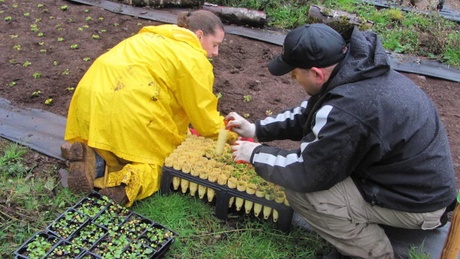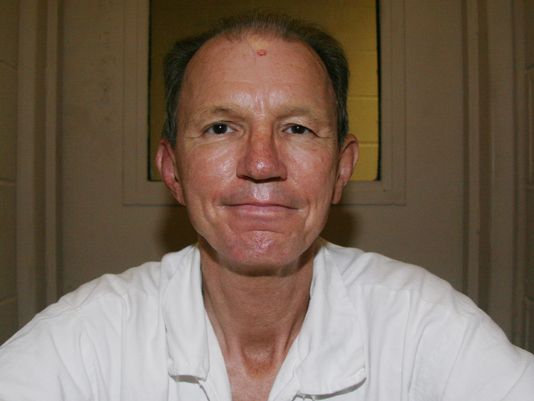
By Tom Banse, Earthfix
In a growing number of Northwest prisons, inmates are rearing endangered plants, butterflies, turtles and frogs for release in the wild.
It started just over a decade ago at a minimum security prison near Olympia. Now inmates at four Washington prisons and three in Oregon are raising dozens of different types of plants, insects and animals to use in restoration, many of them rare or endangered.
Tom Kaye directs the Institute for Applied Ecology, one of the partners in the Oregon Sustainability in Prisons Project. He said the advantages of working in prisons outweigh the security complications.
“The inmates are capable of giving more attention to these organisms than anyone else because they have more time to commit to it,” Kaye said. “They can really nurture and take care of these animals. The same thing is true for these plants.”
In Oregon, inmates at the state prison near Ontario are growing sagebrush to support habitat restoration for the greater sage grouse. Inmates at a correctional center in Salem are rearing threatened golden paintbrush on the prison grounds for seed production. Female inmates at Oregon’s Coffee Creek prison grow the early blue violet, which provides sustenance for rare butterflies when out planted on the Oregon Coast.
Oregon Department of Corrections sustainability coordinator Chad Naugle said, “There is huge interest on the inside” to get these work assignments.
Kaye described gardening as a “calming” activity for inmates, who in addition can acquire vocational skills while they help to rehab the environment. “There are substantial gains on all sides,” said Kaye. “We’re able to get so much more done for ourselves in the mission we are trying to accomplish… it really helps us extend our capacity.”
Prison nurseries in the older program in Washington state have raised 64 different plant species for restoration of South Puget Sound prairies according to Sustainability in Prisons Project program manager Kelli Bush. The Washington program has also partnered with Northwest zoos and state and federal agencies to rear endangered animals as well.
“Since 2009, over 700 federally-threatened, state-endangered Oregon spotted frogs have been reared from eggs to adults at Cedar Creek Corrections Center,” wrote Bush via email from Olympia. “Frogs are released into Pierce County wetlands each fall. To increase the sustainability of this project, crickets are raised as a supplemental food source.”
The minimum security Mission Creek Corrections Center for Women near Belfair raises the endangered Taylor’s checkerspot butterfly from larvae for release into the wild.
The Washington prison program was co-founded by The Evergreen State College and Washington State Department of Corrections in 2003. Participating inmates are paid a nominal rate for their labor. Federal and foundation grants cover most of the program costs.
This was first reported for the Northwest News Network.




